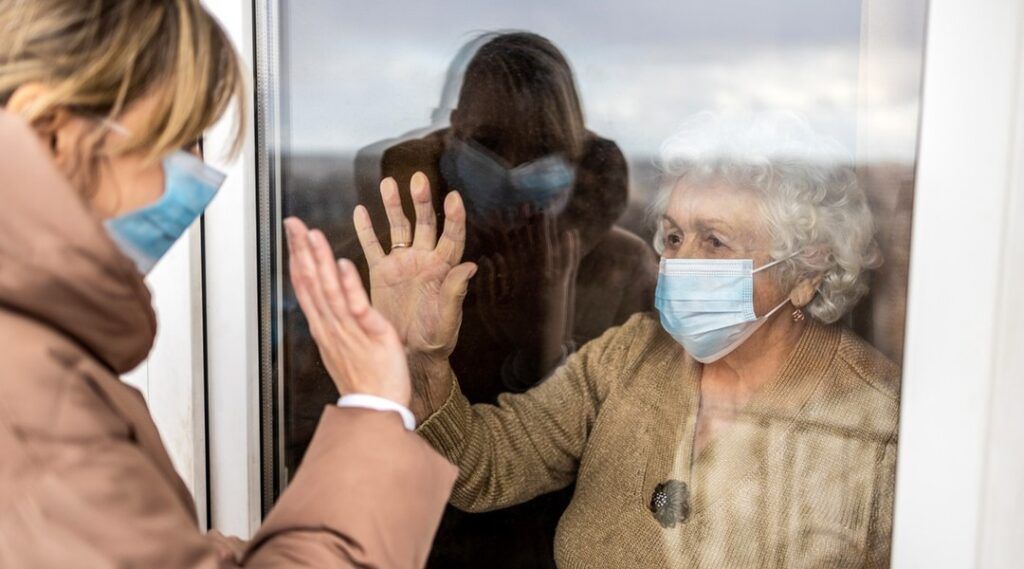The pandemic inquiry has heard that people who tested postive wth Covid were discharged to care homes over fears that the NHS might become overwhelmed and get “clogged up”.
Professor Dame Jenny Harries who was England’s deputy chief medical officer during the pandemic told the inquiry about how an email she sent in mid-March 2020 described a “bleak picture” and “top line awful prospect” of what needed to happen if hospitals overflowed.
However, according to one whistleblower, NHS hospitals were NOT overwhelmed during the pandemic, contrary to reports by the UK government and mainstream media. He even disclosed how NHS bosses artificially inflated the COVID-19 fatalities.
MSN reports: Discharging people to care homes – where thousands of people died of Covid (apparently….no mention of Midazolam)– has been one of the central controversies when it comes to how the Government handled the pandemic.
On Wednesday, the Covid inquiry was read an email exchange between Rosamond Roughton, an official at the Department of Health, and Dame Jenny on March 16 2020.
Ms Roughton asked what the approach should be around discharging symptomatic people to care homes, adding: “My working assumption was that we would have to allow discharge to happen, and have very strict infection control? Otherwise the NHS presumably gets clogged up with people who aren’t acutely ill.”
Ms Roughton added that this was a “big ethical issue” for care home providers who were “understandably very concerned” and who were “already getting questions from family members”.
In response, Dame Jenny emailed: “Whilst the prospect is perhaps what none of us would wish to plan for, I believe the reality will be that we will need to discharge Covid-19 positive patients into residential care settings for the reason you have noted.
“This will be entirely clinically appropriate because the NHS will triage those to retain in acute settings who can benefit from that sector’s care.
“The numbers of people with disease will rise sharply within a fairly short timeframe and I suspect make this fairly normal practice and more acceptable, but I do recognise that families and care homes will not welcome this in the initial phase.”
Questioned about this email, Dame Jenny told the Covid inquiry it “sounds awful” but was intended to provide “a very, very high level view” of what would happen if there was an “enormous explosion of cases”.
She said: “It was a very bleak picture because I think the reality was, this isn’t an invitation to be discharging Covid patients, it’s actually a reality that says if hospitals overflow … those who are physically well to go, will go.”
She later added it was a “high-level view of what was coming over the hill” and should not be read as her saying that such a move was “fine”.
She said: “My message on the 16th … this was a look ahead and think, ‘this is what will happen in due course’, it doesn’t give a timeframe.
“You should not take my email as to say, ‘the NHS is suddenly going to discharge lots of Covid-positive patients and that’s absolutely fine’.
“What it was doing was painting a picture to the person who was contributing to policy on the official side at the Department of Health.”
She added: “I’m really keen to emphasise my email was a high-level view so people were aware of what was kind of coming over the hill, but the hill was still a little way away.”
Inquiry counsel Andrew O’Connor then suggested there was “some degree of equanimity about discharging large numbers of Covid-19 patients into that very vulnerable environment”.
Dame Jenny replied, “if I may, I think that’s an interpretation”, adding: “This was a very high-level picture to reinforce, if you like, the position that the country was in at that weekend, and I think we’ve heard that in other places.
“If people were not thinking through what the likelihood was in the rising numbers of cases, as we’ve heard, I don’t think we have sensible conversations about managing risks.
“This is not a policy at all. This is a statement of, ‘if you have a pandemic in a country, how on earth are you going to manage that exponential rise in cases?’”

